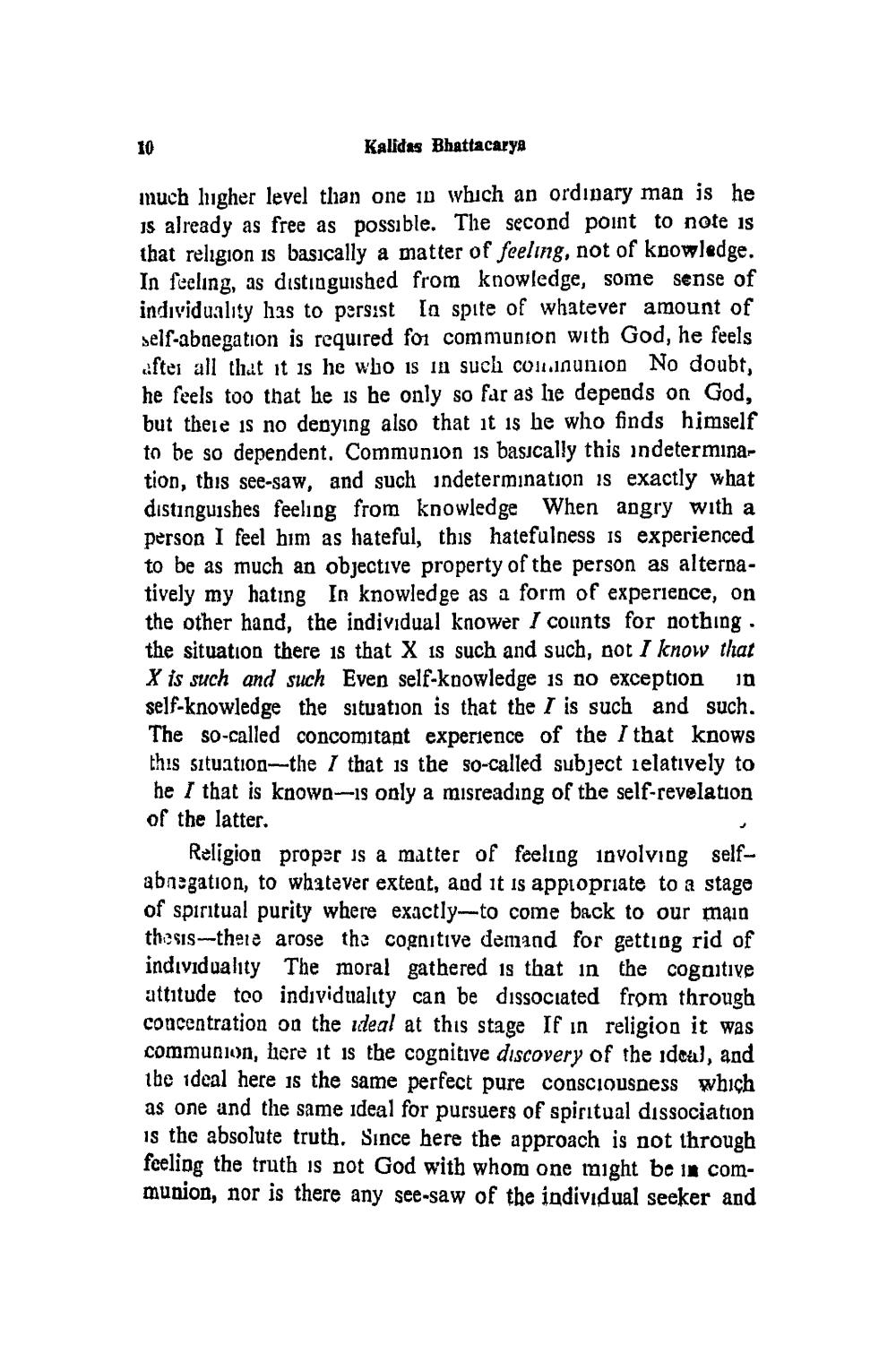________________
Kalidas Bhattacarya
much higher level than one 10 which an ordipary man is he is already as free as possible. The second point to note is that religion is basically a matter of feeling, not of knowledge. In feeling, as distinguished from knowledge, some sense of individuality has to persist In spite of whatever amount of self-abnegation is required for communion with God, he feels after all that it is he who is in such communion No doubt, he feels too that he is he only so far as lie depends on God, but there is no denying also that it is be who finds himself to be so dependent. Communion is basically this indetermination, this see-saw, and such indetermination is exactly what distinguishes feeliog from knowledge When angry with a person I feel him as hateful, this hatefulness is experienced to be as much an objective property of the person as alternatively my hating In knowledge as a form of experience, on the other hand, the individual knower I counts for nothing. the situation there is that X is such and such, not I know that X is such and such Even self-knowledge is no exception in self-knowledge the situation is that the I is such and such. The so-called concomitant experience of the I that knows this situation-the I that is the so-called subject ielatively to he i that is known-1s only a misreading of the self-revelation of the latter.
Religion proper is a matter of feeling involving selfabnegation, to whatever extent, and it is appropriate to a stage of spiritual purity where exactly—to come back to our main thesis-there arose the cognitive demand for getting rid of individuality The moral gathered is that in the cognitive attitude too individuality can be dissociated from through concentration on the ideal at this stage If in religion it was communion, here it is the cognitive discovery of the ideal, and ibe ideal here is the same perfect pure consciousness which as one and the same ideal for pursuers of spiritual dissociation is the absolute truth. Since here the approach is not through fceling the truth is not God with whom one might be in communion, nor is there any see-saw of the individual seeker and




